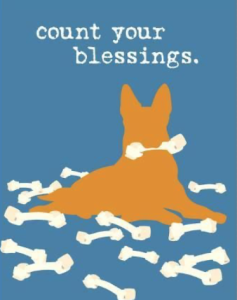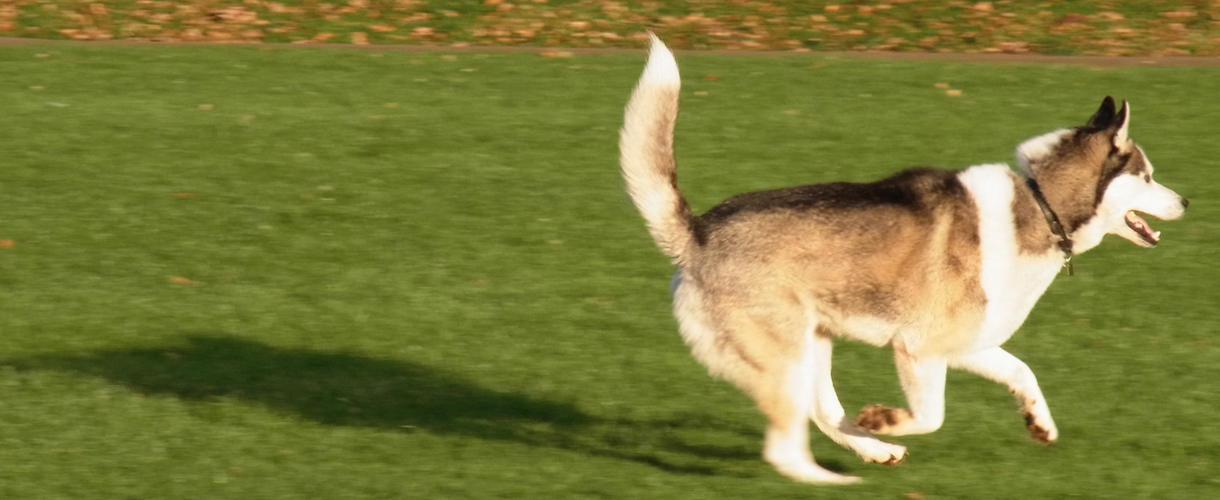
Counting Our Blessings and Accentuating The Positive
Being told to count one’s blessings can be incredibly irritating; the sort of thing one’s parents say when what one actually needs is some help with a problem. On the other hand:
You’ve got to accentuate the positiveEliminate the negativeAnd latch on to the affirmativeDon’t mess with Mr In-between
…as Bing Crosby sang.
Humans – and other animals – are hard-wired to focus on the negative; its what keeps animals alive. Counting your blessings while you ignore the fact that you’ve been warned about the man-eating tiger lurking round the corner won’t perpetuate your genes and it will probably end up stinging a bit. It is not conducive to good mental health either – for you or your dog. This is why training (for humans and other animals) using positive reinforcement is not only more effective, but essential for ethical and effective learning.
It is also important for keeping us going when the going gets tough – and raising a puppy is tough. There is extra pressure on professional behaviourists and trainers, because the expectation is that they and their dog will be perfect and much of the training takes place in public. I was already having a bad morning with Travis when someone shouted out of their car window to ask why I was being such a bad trainer and saying that she wouldn’t recommend me. Just what I needed – not.
Training does not happen overnight and trainers are human too. Some dogs are harder to train in some tasks than others and we all have off days – dogs and humans. It’s much easier to be calm and collected and professional with a client and their dog than with the dog that you live with and that has kept you up half the night. Apart from anything else, you can walk away from the client’s dog after an hour of training. I would happily have explained why I was having so much difficulty with my leaping, twisting Aussie if I had been asked a genuine question about why he was so unsettled and not immediately castigated, and perhaps not at the time that I was struggling on a narrow pavement next to traffic. It was poor etiquette, and I found it hard not to take it very personally indeed. I felt bad enough about struggling with an excited puppy without any more hindrance thank you very much. I was very grateful when the traffic lights turned green and she drove off to a background of annoyed hoots.
So, when I was discussing a problem that a client had with a dog, I realised that it was something that I have never needed to worry about at home because it hadn’t been a problem with Travis – and that got me thinking about all of the other things that aren’t a problem. Of course, they far outnumber the things that are, so next time that someone decides to make me feel inadequate I will be counting our blessings and accentuating the positive – before taking a deep breath and tackling my own training problem.
Next week: Cueing Up – The Watch(ing) Dog
If you need help with making your cues reliable, book a Rock Solid Rover Course and hone your recall or practice being safe around livestock and wildlife with a Reliable Recall Workshop or Country Canines Course.

